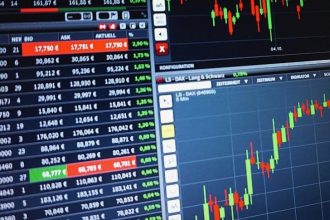In the annals of finance, few names resonate with the gravitas and wisdom of Warren Buffett. The legendary “Oracle of Omaha,” through his stewardship of Berkshire Hathaway, has not merely built an investment empire; he has crafted a philosophy, a bedrock of value investing that continues to captivate and guide investors globally. Today, as markets navigate unprecedented volatility and technological shifts, understanding the intricate web of Warren Buffett investments remains a masterclass in strategic capital deployment, offering invaluable insights into enduring wealth creation and the meticulous selection of quality assets.
Berkshire Hathaway, far from being a mere fund, functions as a sprawling multinational conglomerate, a testament to Buffett’s diversified vision. It owns and operates a formidable array of businesses spanning insurance, railroads, energy, and media, while simultaneously holding significant stakes in publicly traded companies. This dual structure provides both stability through wholly-owned subsidiaries and growth potential from meticulously chosen public equities, making Berkshire’s portfolio a fascinating study in long-term conviction and adaptability, even as new challenges and opportunities continually emerge on the horizon.
| Category | Information |
| Full Name | Warren Edward Buffett |
| Date of Birth | August 30, 1930 |
| Place of Birth | Omaha, Nebraska, U.S. |
| Known For | Legendary investor, business magnate, philanthropist, Chairman and CEO of Berkshire Hathaway Inc. |
| Education | University of Nebraska–Lincoln (B.S.), Columbia Business School (M.S.) |
| Career Highlights |
|
| Investment Philosophy | Value investing, long-term holdings in companies with strong fundamentals and competitive advantages. |
| Official Website (Berkshire Hathaway) | www.berkshirehathaway.com |
At the heart of Berkshire’s formidable portfolio are its long-standing, meticulously selected public equity holdings, often referred to as “Buffett stocks.” These are companies that have consistently demonstrated robust business models, strong management, and durable competitive advantages. From the ubiquitous presence of Coca-Cola, cementing its global brand dominance for decades, to the technological prowess of Apple, which has remarkably become one of Berkshire’s largest investments, these picks often serve as a “cheat sheet” for discerning investors. Other notable stalwarts include American Express Co., Bank of America Corp., and Chevron Corp., reflecting a continued belief in established financial institutions and essential energy sectors. These holdings, regularly disclosed through SEC 13F filings, exemplify Buffett’s unwavering commitment to quality and intrinsic value, offering a transparent window into his strategic thinking.
However, the Oracle’s playbook is not static; it continually adapts to market dynamics and unique opportunities. A prime example is Berkshire Hathaway’s deepening involvement with Occidental Petroleum (Oxy), particularly the recent negotiations to acquire OxyChem, Occidental’s petrochemical business, for a reported $10 billion. This significant move, potentially Berkshire’s largest deal since 2022, underscores a strategic embrace of the energy sector, especially during periods of perceived undervaluation. While some critics have voiced concerns regarding Oxy’s debt load and the cyclical nature of its chemical assets, Buffett’s history suggests a deeper, contrarian conviction. He often identifies value where others see distress, leveraging Berkshire’s immense cash reserves to secure assets offering long-term strategic benefits and robust cash flows, thereby reinforcing the conglomerate’s industrial backbone.
Even the most astute investor faces challenges, and Berkshire Hathaway is no exception. The substantial $3.7 billion write-down on its stake in Kraft Heinz, publicly acknowledged as an investment that “hasn’t worked out,” serves as a poignant reminder that even the Oracle of Omaha can miscalculate. Such candid admissions, however, reinforce transparency and highlight a crucial lesson: not every investment will be a home run. Furthermore, with the passing of Charlie Munger and Warren Buffett now well into his 90s, the topic of succession at Berkshire Hathaway looms large. Yet, rather than signifying an impending decline, this transition is optimistically viewed as an evolution. The groomed heirs, widely considered savvy investors, are expected to uphold Berkshire’s core principles, steering the company into a new era of growth, leveraging its robust infrastructure and timeless investment philosophy.
Looking ahead, the future of Warren Buffett investments, channeled through Berkshire Hathaway, appears remarkably resilient and strategically positioned. By integrating insights from AI-driven analytics and traditional fundamental analysis, investors can continue to extract profound lessons from Berkshire’s moves. The company’s enduring strength lies not just in its individual holdings, but in its ability to deploy capital opportunistically, acquiring businesses that fit its stringent criteria, and maintaining a fortress-like balance sheet. This approach allows Berkshire to capitalize during market dislocations, buying when others are fearful, thereby cementing its reputation as a beacon of stability and long-term value creation. The principles of patience, discipline, and a deep understanding of business economics, championed by Buffett for decades, remain incredibly effective guiding lights for navigating the complexities of modern markets.






